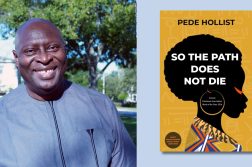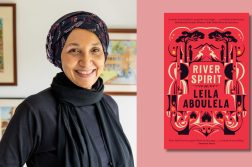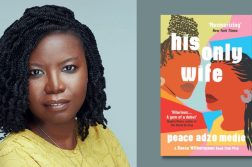|
Getting your Trinity Audio player ready... |
If you’ve read Nike Campbell’s debut work, Threads of Gold Beads (2012), and enjoyed it, and love royal affairs, then Saro threads that. It’s a story of love, that traverses borders, and is filled with political intrigues, and palace dramas. Saro (2022), longlisted for the 2023 ANA Chinua Achebe Prize, “… is a mutigenerational tale of betrayal and restitution, love and war, inspired by true events that will take the reader from the rocky terrain of Abeokuta and burgeoning city of Lagos to the lion mountains of Freetown and Hastings of Sierra Leone from the 1830s to the 1850s.”
There is a lot that reading this book will do to and for you. Maybe it will be history lessons you will pick from it. Maybe you’ll learn to love again. Maybe you’ll find friends, finally on the pages of a book, real friends. It is heavy though, if I may spoil it a bit for you; heavy on love, loss, betrayal, family, and more. You just have to pick it up and find out.
Saro starts by introducing us to its characters: We meet Siwoolu King of Egbaland, his pregnant Olori Dotunu, his son Somide and Ireti, Dotunu’s maid cum sister (who is mute) on a visit to Eko orchestrated by his childhood friend Sunmonu. The young royals are lured onto a slave ship and captured. Days later they are rescued with other enslaved people by the British and taken to Serra Lyoa, present day Sierra Leone. There they build a new life, give birth to more children, become successful and well-respected members of their new society. Amidst all this, Dotunu is ever so determined to find her way back home, but Siwoolu is content with his new life until news gets to them that Sunmonu the betrayer was going to be crowned king.
I like that the book tells the story of slavery from the little-known side: Most times we read history from the eyes of the conqueror and never from the side of the vanquished. Saro gives us a glimpse into the lives of enslaved people who regained their freedom, were able to reestablish their lives as freemen (however in Freetown) as well as their never-ending search on how to get back home.
Siwoolu was constantly haunted by his ordeal on the slave ship and his guilt at not being able to safeguard his family. Religion (Christianity) was his succour; Dotunu points to the fact that he was only ever his former alive self whenever he was studying the Bible, and she would do anything to have that Siwoolu back. He is baptized and takes on the name John, he also ensures all his children are baptized and Dotunu also who only did it for him.
I love the infusion of bits and pieces of history. We see Samuel Ajayi Crowther – who would later lead a missionary expedition back to Nigeria. We meet Osuntade, descendant of a former enslaved person trying so hard to reconnect with her roots through traditional religion. We also see the Igbo revolt which was depicted by the character Demilade’s heavily pregnant wife who would rather die than give birth to her child as a slave. The ocean bears witness to her bravery as she jumped to her death.
The love triangle between Siwoolu, Dotunu and Waltz is also worthy of note. From the moment Waltz set his eyes on Dotunu, he fell in love, and he promised to do everything within his power to help her find her way home which he was eventually able to fulfill at the end. At one point I was rooting for Waltz and Dotunu to get together even though I wondered how it would look like to the other people they live with. I imagine the headline in the newspaper reading “Yoruba Olori leaves King, abandons family and runs away with Mulato lover”.
The ending is rather gloomy as everyone did make it back home to Egbaland, even if for one it was to be buried with the ancestors. On a brighter side though, the end was actually the beginning of another story. But I’m sure you’d enjoy reading this intriguing masterpiece as I have.


